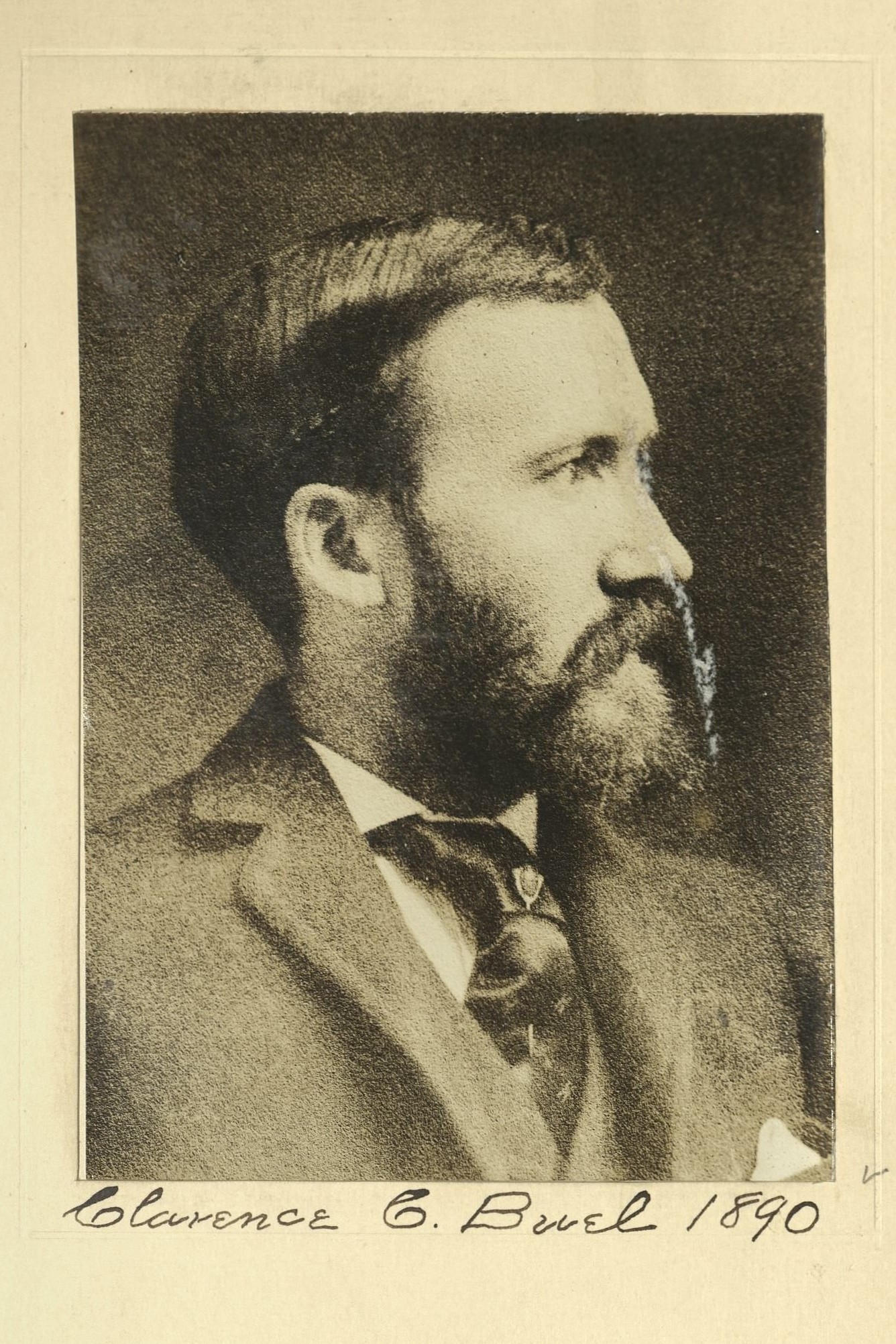Editor/Author
Centurion, 1890–1933
Born 29 July 1850 in Laona, New York
Died 22 May 1933 in New York (Manhattan), New York
Buried Sleepy Hollow Cemetery , Sleepy Hollow, New York
, Sleepy Hollow, New York
Proposed by Laurence Hutton and Richard Watson Gilder
Elected 6 December 1890 at age forty
Seconder of:
Century Memorial
Whoever met Clarence Clough Buel at the Club-house, even in the days when physical infirmity forced him to move about with crutches, recognized instantly the seasoned critic of events. On the developments of the day he had his judgments; but, like many other men whose career of personal achievement had ended long ago, his keenest interest was in that bygone period. During the early aftermath of the great European war it became a matter of remark that, whereas returning soldiers disliked to write or talk of their experiences, published controversy over the strategy of the campaigns began at once, and with it dispute between high military officers regarding the credit for victories or responsibility for defeats. Exactly the opposite in both respects had happened after our own War of Secession. The soldiers’ personal reminiscences filled columns of print as soon as war was over, but the controversy of commanders came only after a very long lapse of time. It was not until twenty years after Gettysburg, for instance, that what may be called the “inside facts” of that celebrated battle were authoritatively brought to light.
When Buel in 1883 conceived the idea of procuring for the Century Magazine the personal narrative of commanding generals on both sides regarding circumstance, strategy, individual achievement or delinquency, the reading public had little more information than the newspaper accounts of twenty years before. The plan came to Buel accidentally. Two or three papers, published in the Century Magazine of 1883, had discussed John Brown’s raid from opposing points of view. They attracted such wide interest that Buel proposed publication of perhaps eight or ten similar controversial articles on the “decisive battles” of the war. The moment he began to get into touch with surviving general officers, the possibilities of the program widened. In the end, so many important articles were procured that their publication in the Century occupied the three years from November, 1884, to November, 1887. It would today be difficult fully to understand the history of that war without them.
Many outstanding commanders—Meade, Lee and Jackson among them—had died before Buel began his quest; but Grant, McClellan, Longstreet, Johnston, Beauregard joined in the Century’s discussions, and with them a long list of responsible subordinate commanders. Among their enlightening contributions to history were the frank exposure by his close associates, civil and military, of Jefferson Davis’s bad temper and bad judgment; the profound respect, frankly expressed by Confederate commanders, for the character and capacity of Lincoln; General Buell’s extremely caustic criticism on the strategy of Grant’s Shiloh campaign and, perhaps beyond all else, disclosure by Longstreet and other high Confederate officers of Lee’s inexplicable obstinacy in ordering the frontal attack at Gettysburg, when his corps commanders had pronounced it suicidal. These vivid personal reminiscences could not have been obtained without farseeing, judicious and untiring industry. In all respects, it was a notable achievement. What the reading public thought of it was shown by the rise in the magazine’s circulation, within six months, from 127,000 to 225,000, and by the commanding position which was won for it without dispute in the periodical literature of the day.
Alexander Dana Noyes
1934 Century Association Yearbook

